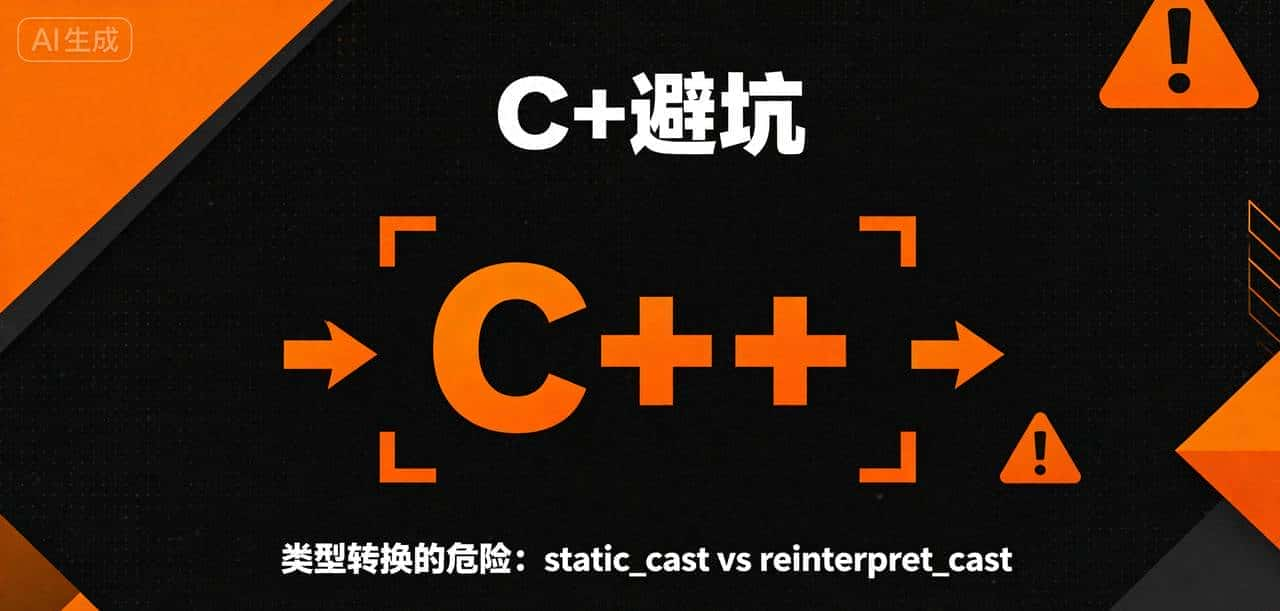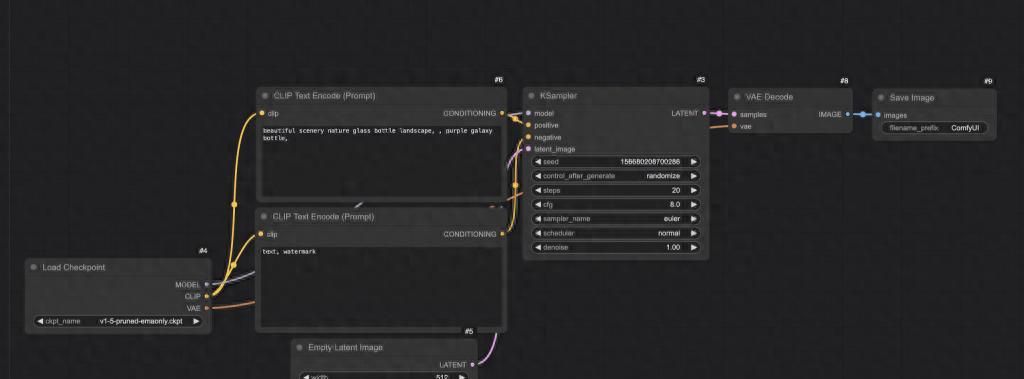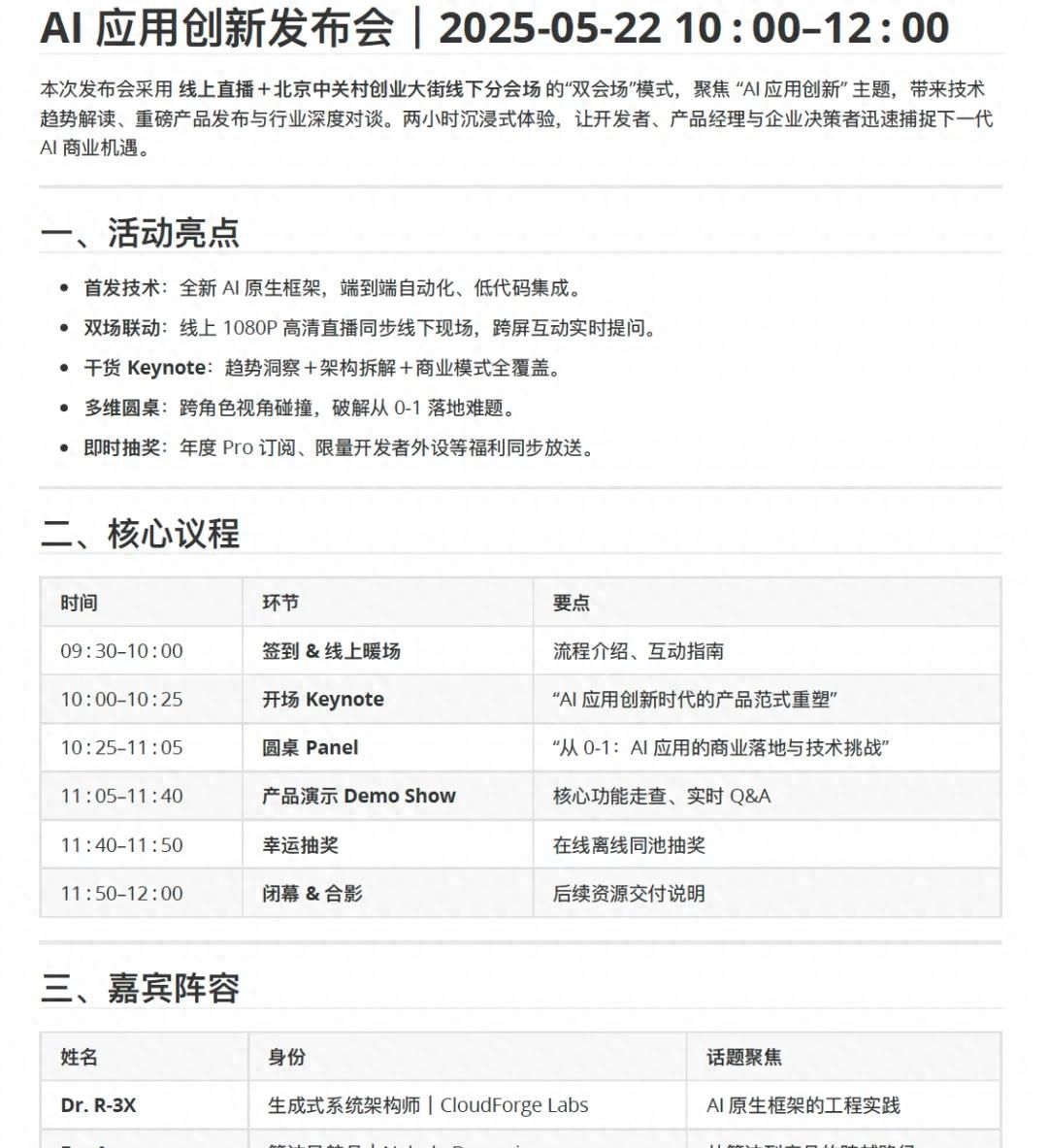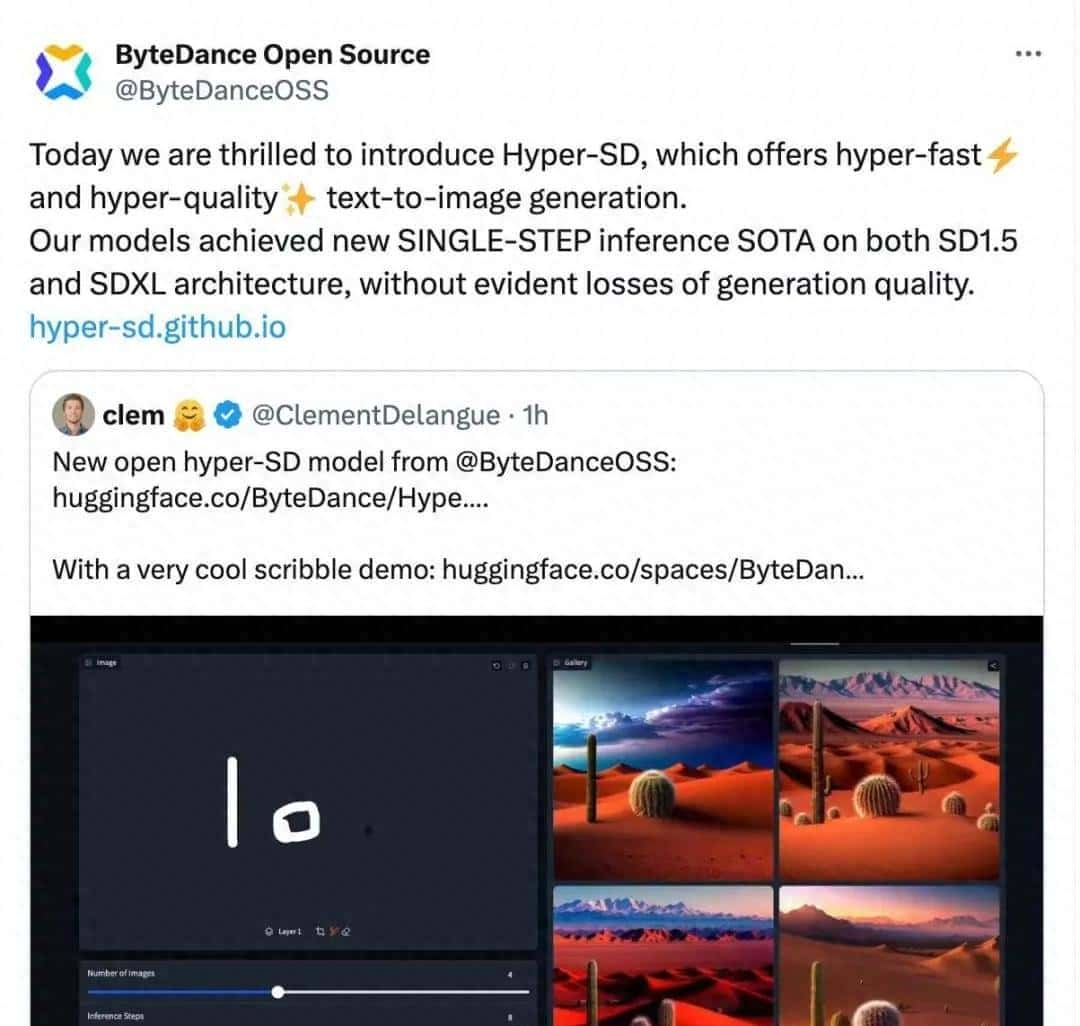C++避坑-类型转换的危险:static_cast vs reinterpret_cast

您在使用c++的过程中遇到过哪些”坑”呢?欢迎在留言区分享讨论,也欢迎关注收藏,多谢.
C++有四种类型转换操作符,每种都有自己的用途和陷阱。用错了就是未定义行为的源泉。
C风格的类型转换(type)value太危险了,C++引入了四种明确的转换:
- static_cast:安全的类型转换
- dynamic_cast:运行时类型检查和转换
- const_cast:移除const/volatile
- reinterpret_cast:低级别的位模式转换
static_cast用于”合理”的类型转换:
int i = 42;
double d = static_cast<double>(i); // int转double,安全
double d2 = 3.14;
int i2 = static_cast<int>(d2); // double转int,会截断
void* ptr = &i;
int* iptr = static_cast<int*>(ptr); // void*转具体指针,小心!
static_cast不检查运行时类型,只做编译时转换:
class Base {};
class Derived : public Base {};
class Other {};
Base* base = new Derived();
Derived* derived = static_cast<Derived*>(base); // 看起来安全
Base* base2 = new Base();
Derived* derived2 = static_cast<Derived*>(base2); // 未定义行为!
如果base实际上不是Derived,这就是未定义行为。
dynamic_cast在运行时检查类型,更安全但需要虚函数:
class Base {
public:
virtual ~Base() {} // 需要虚函数
};
class Derived : public Base {};
Base* base = new Derived();
Derived* derived = dynamic_cast<Derived*>(base); // 成功
Base* base2 = new Base();
Derived* derived2 = dynamic_cast<Derived*>(base2); // 返回nullptr
如果转换失败,dynamic_cast返回nullptr(对指针)或抛出异常(对引用)。
try {
Derived& ref = dynamic_cast<Derived&>(*base2); // 抛出std::bad_cast
} catch (const std::bad_cast& e) {
std::cout << "Cast failed
";
}
但dynamic_cast有性能开销,只在必要时用。
const_cast用于移除const/volatile(这本身就说明设计可能有问题):
void print(const int& value) {
// const_cast<int&>(value) = 10; // 危险!修改const引用
}
const int x = 42;
int& y = const_cast<int&>(x);
y = 100; // 未定义行为!修改const对象
修改真正的const对象是未定义行为。const_cast只应该用于去除const修饰符,而不是修改const对象:
void legacy_function(char* str); // 旧接口,不能改
void modern_function(const char* str) {
// 虽然str是const的,但我们知道函数不会修改它
legacy_function(const_cast<char*>(str)); // 可能安全,但不推荐
}
但这样很危险,如果legacy_function真的修改了字符串,就是未定义行为。
reinterpret_cast是最低级别的转换,几乎总是未定义行为的源泉:
int x = 42;
double* dptr = reinterpret_cast<double*>(&x); // 危险!
std::cout << *dptr << std::endl; // 未定义行为!
reinterpret_cast只是重新解释位模式,不做任何检查:
int* iptr = new int(42);
char* cptr = reinterpret_cast<char*>(iptr); // 指针类型转换
// 可以用于访问对象的字节表明,但要小心对齐
reinterpret_cast主要用于:
- 函数指针转换(危险,除非你真的知道自己在做什么)
- 序列化/反序列化
- 底层系统编程
但大部分情况下,你不需要它。
常见的错误:
- 错误的指针转换:
int x = 42;
char* cptr = reinterpret_cast<char*>(&x); // 可能可以,但要小心对齐
int* iptr = reinterpret_cast<int*>(cptr); // 可能安全
- 继承中的错误转换:
class Base {};
class Derived : public Base {};
Derived* d = new Derived();
Base* b = d; // 隐式转换,安全
// 错误:用static_cast转回去
Derived* d2 = static_cast<Derived*>(b); // 如果b的确 是Derived,安全
// 但最好用dynamic_cast
Derived* d3 = dynamic_cast<Derived*>(b); // 运行时检查,更安全
- void*的滥用:
int x = 42;
void* vptr = &x;
double* dptr = static_cast<double*>(vptr); // 编译通过,但危险!
void*转回具体类型时,必须确保类型正确。
有时候你需要类型擦除,但要小心:
#include <memory>
class Base {
public:
virtual ~Base() = default;
};
template<typename T>
class Derived : public Base {
T value;
public:
Derived(T v) : value(v) {}
T get() const { return value; }
};
void* getValue(Base* base) {
// 错误:不知道具体类型
// return ???;
}
// 更好的方式:使用类型安全的接口
现代C++提供更好的类型安全:
// 用variant取代void*
#include <variant>
std::variant<int, double, std::string> value = 42;
if (std::holds_alternative<int>(value)) {
int i = std::get<int>(value);
}
// 用any取代void*
#include <any>
std::any value = 42;
if (value.type() == typeid(int)) {
int i = std::any_cast<int>(value);
}
写在最后
类型转换是C++中最危险的操作之一:
- static_cast:相对安全,但不检查运行时类型
- dynamic_cast:运行时检查,但需要虚函数
- const_cast:移除const,一般说明设计有问题
- reinterpret_cast:最低级别,几乎总是危险的
提议是:如果你需要类型转换,先问问自己:设计有没有问题?有没有更好的方式?类型转换应该是最后的选择,而不是第一选择。不少人到处用reinterpret_cast,结果代码到处都是未定义行为。
您在使用c++的过程中这个问题或者类似的其他”坑”吗,欢迎在留言区分享讨论,也欢迎关注收藏,我们将持续分享更多好文,多谢.










收藏了,感谢分享
谢谢